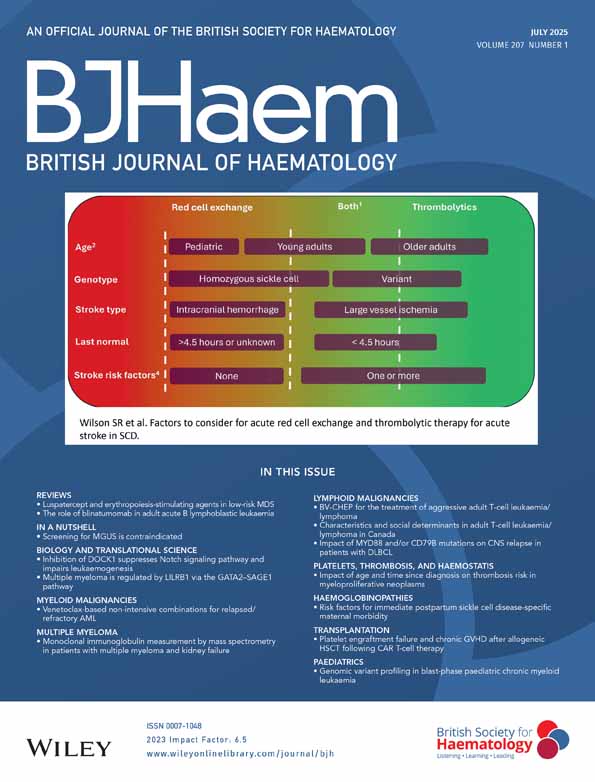The effect of intravenous iron on the reticulocyte response to recombinant human erythropoietin
Abstract
We studied the effect of intravenous (i.v.) adminisration of 200 mg of iron sucrose following an i.v. bolus injection of recombinant human erythropoietin (r-HuEPO; 300 U/kg body weight) in seven subjects and compared it with seven subjects treated with r-HuEPO alone. Reticulocytes, serum erythropoietin (EPO) and ferritin levels were studied at baseline and daily for the following 8 d. Use of i.v. iron abolished the marked reduction in serum ferritin observed with r-HuEPO administration. Although the total number of reticulocytes was not affected by i.v. iron administration, the reticulocyte Hb content and retHb (a measure in g/l of the Hb contained in all reticulocytes) were increased in the i.v. iron/r-HuEPO group compared with the group who received r-HuEPO alone. Therefore i.v. iron significantly potentiates the haemopoietic response to r-HuEPO in normal subjects.




